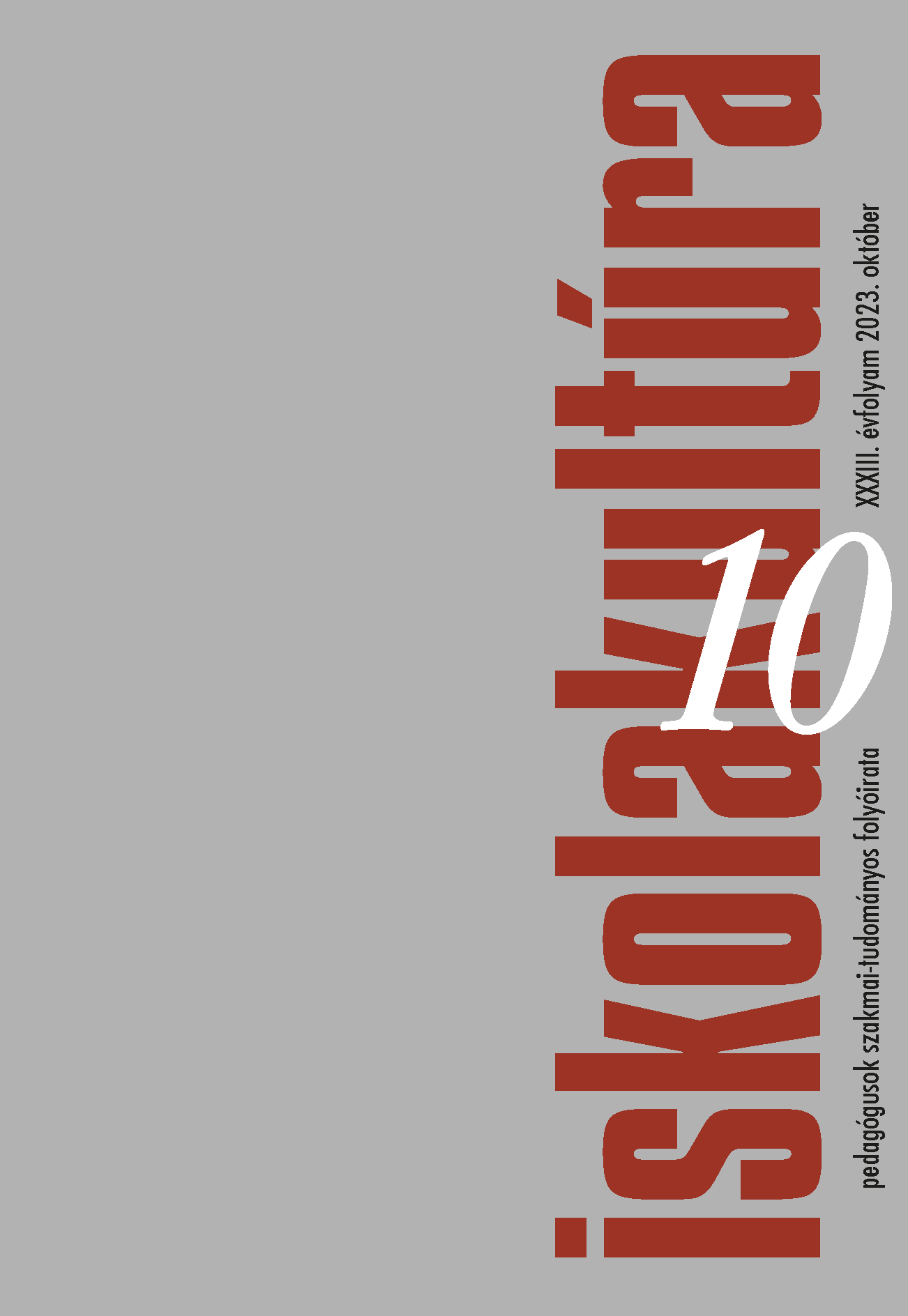The role of artificial intelligence in online examination
Main Article Content
Abstract
Artificial intelligence (AI) is now present in many areas of life and is playing an increasingly important role. Education 4.0 has brought new opportunities for the use of AI. Online learning opportunities, such as Massive Open Online Courses (MOOCs), are increasingly using artificial intelligence (AI) and machine learning to improve the efficiency of knowledge transfer and educational processes. AI can help to design course materials and assessments and to evaluate student performance effectively. However, the use of AI also poses challenges, such as changes in the role of the instructor, as well as privacy and cyber security concerns. Taken as a whole, it offers promising opportunities for learners and educators and is expected to play an increasing role in education in the future, as the continuous development of AI can help to further improve the efficiency and effectiveness of education. This qualitative research investigated the knowledge of the faculty members (N=12) of the Alba Regia Technical Faculty of Óbuda University about the use of AI through focus group discussion. We aimed to map the lecturers’ knowledge, attitudes and opinions about AI methods and gain insights into their views and experiences on the topic. Our research used a combined methodological approach to explore AI tools’ potential benefits and challenges in the examination process. Our results show that AI tools can improve the examination process in higher education, however, their use requires careful consideration and monitoring.
Downloads
Article Details
References
Ady, L. & Terpecz, G. (2018). Mesterséges intelligencia alkalmazása az oktatásban. Repüléstudományi Közlemények, 30(1), 111–126. https://folyoirat.ludovika.hu/index.php/reptudkoz/article/view/4268
Ahmad, I., Sharma, S., Singh, R., Gehlot, A., Priyadarshi, N. & Twala, B. (2022). MOOC 5.0: A Roadmap to the Future of Learning. Sustainability, 14(18), 11199. DOI: 10.3390/su141811199
Alghamdi, A. & Ragab, M. (2022). Artificial Intelligence Techniques Based Learner Authentication in Cybersecurity Higher Education Institutions. Computers, Materials & Continua, 72(2), 3131–3144. DOI: 10.32604/cmc.2022.026457
Chen, Z., Juxiao, Z., Jiang, X., Hu, Z., Han, X., Xu, M., V, S. & Vivekananda, G. N. (2020). Education 4.0 using artificial intelligence for students performance analysis. Inteligencia Artificial, 23(66), 124–137. DOI: 10.4114/intartif.vol23iss66pp124-137
Csepeli, Gy. (2020a). Ember 2.0 – A mesterséges intelligencia gazdasági és társadalmi hatásai. Kossuth Kiadó.
Csepeli, Gy. (2020b, szerk.). Mesterséges intelligencia. Szabad Piac, (1). https://uni-milton.hu/wp-cont-ent/uploads/2020/04/Szabad-Piac-2020_1.
Deng, J. & Lin, Y. (2023). The Benefits and Challenges of ChatGPT: An Overview. Frontiers in Computing and Intelligent Systems, 2(2), 81–83. DOI: 10.54097/fcis.v2i2.4465
Dietz, F. (2020), A mesterséges intelligencia az oktatásban: kihívások és lehetőségek. Scientia et Securitas, 1(1), 54–63. DOI: 10.1556/112.2020.00009
Dimitriadou, E. & Lanitis, (2023). A critical evaluation, challenges, and future perspectives of using artificial intelligence and emerging technologies in smart classrooms. Smart Learning Environments, 10, 12. DOI:10.1186/s40561-023-00231-3
Európai Bizottság (2020). Fehér könyv a mesterséges intelligenciáról: a kiválóság és a bizalom európai megközelítése.https://eur-lex.europa.eu/legal-content/HU/ALL/?uri=CELEX:52020DC0065
Horváth, L. (2023). A mesterséges intelligencia lehetőségei és kihívásai az oktatásban -reflexió neveléstudományi perspektívából. Konferencia: MTA PTB Digitális Pedagógia Albizottság nyilvános ülése, 2023 április. DOI: 10.13140/RG.2.2.33022.66888
Kasneci, E., Sessler, K., Küchemann, S., Bannert, M., Dementieva, D., Fischer, F., Gasser, U., Groh, G., Günnemann, S., Hüllermeier, E., Krusche, S., Kutyniok, G., Michaeli, T., Nerdel, C., Pfeffer, J., Poquet, O., Sailer, M., Schmidt, A., Seidel, T., Stadler, M., Weller, J., Kuhn, J. & Kasneci, G. (2023). ChatGPT for good? On opportunities and challenges of large language models for education, Learning and Individual Differences, 103, 102274, DOI: 10.1016/j.lindif.2023.102274
Kurzweil, R. (2013). A szingularitás küszöbén. Amikor az emberiség meghaladja a biológiát. Ad Astra Kiadó.
Lameras, P. & Arnab, S. (2022) Power to the Teachers: An Exploratory Review on Artificial Intelligence in Education. Information, 13, 14. DOI: 10.3390/info13010014
Mandić, D. (2022). A mesterséges intelligencia alkalmazása az okosotthonokban. Biztonságtudományi Szemle, 4(1), 33–41. https://biztonsagtudomanyi.szemle.uni-obuda.hu/index.php/home/article/view/196
McCarthy, J. (2007). What Is Artificial Intelligence? Computer Science Department, Nov 12. https://www.diochnos.com/about/McCarthyWhatisAI.pdf
Meskó, B. & Görög, M. (2020). Rövid útmutató egészségügyi szakemberek számára a mesterséges intelligencia korában. Magyar Tudomány, 181(10), 1361–1377 DOI: 10.1556/2065.181.2020.10.8
Morgan, D. L. (1997) Focus Groups as Qualitative Research. Sage Publications. DOI: 10.4135/ 9781412984287
Németh, D. (2021). Mesterséges intelligencia – a közlekedés jövője? Közbiztonsági Szemle, (2), 56–72.
Omar, H. & Tilesch, Gy. (2021). Mesterség és intelligencia – Vegyük kezünkbe sorsunkat az MI korában.Libri Könyvkiadó.
Searle, J. R. (1980). Minds, Brains and Programs. Behavioral and Brain Science, 3, 417–424.
Searle, J. R. (1996). Az elme, az agy és a programok világa. Kognitív tudomány. Osiris Kiadó – Láthatatlan Kollégium.
Tegmark, M. (2018). Élet 3.0 Embernek lenni a mesterséges intelligencia korában. HVG-Könyvek

